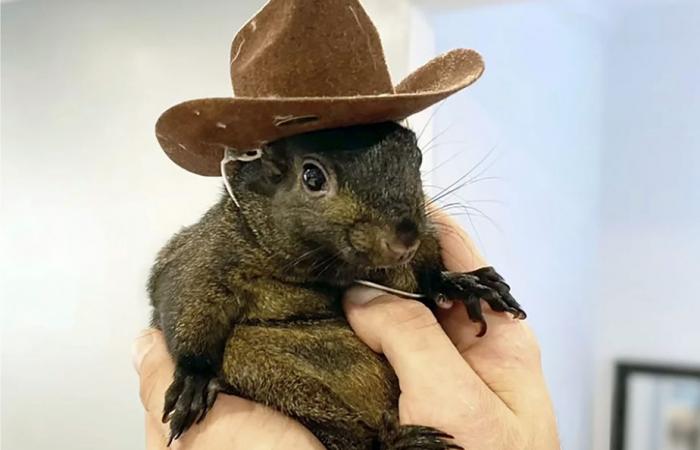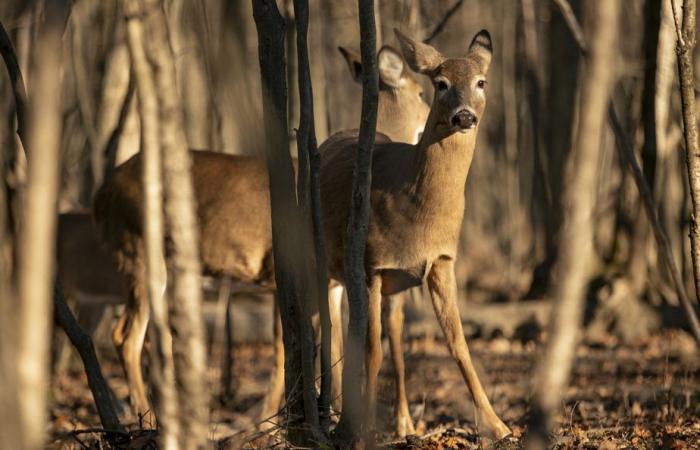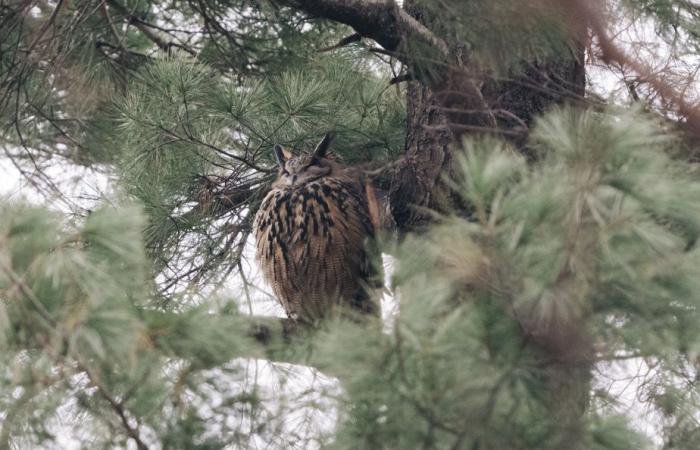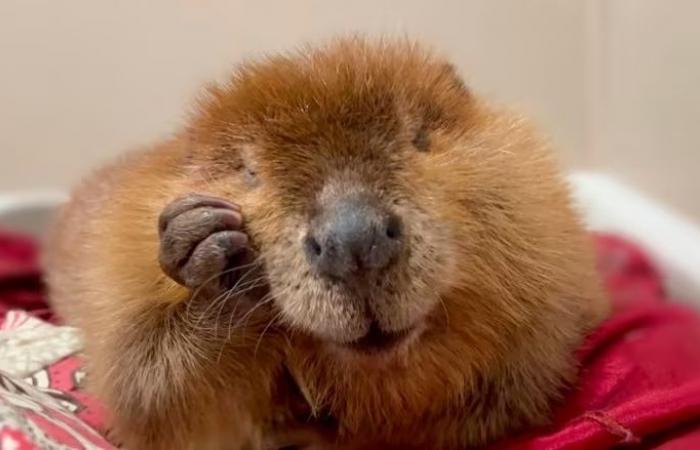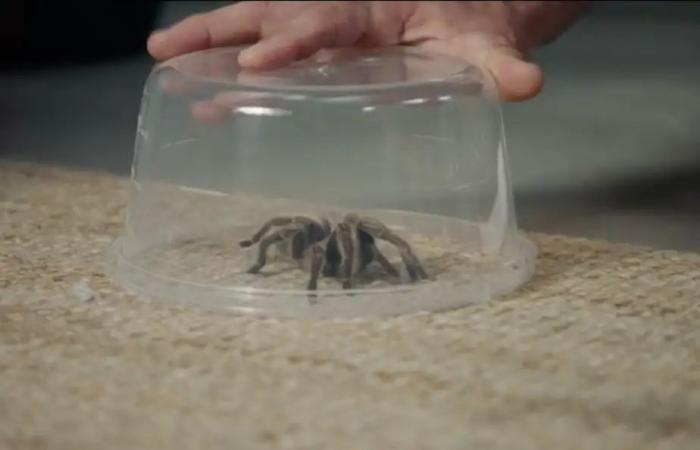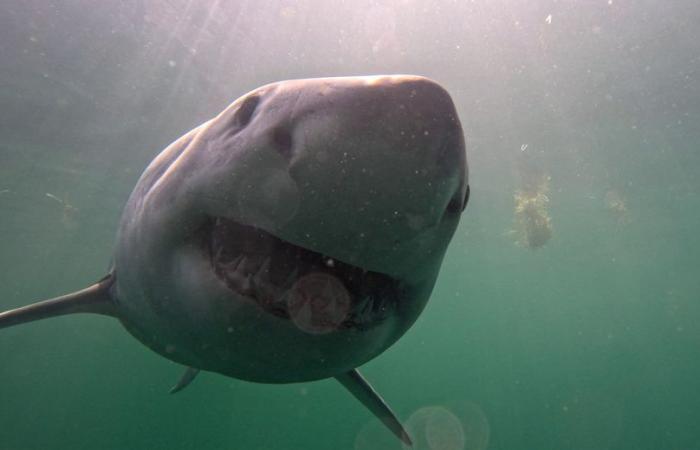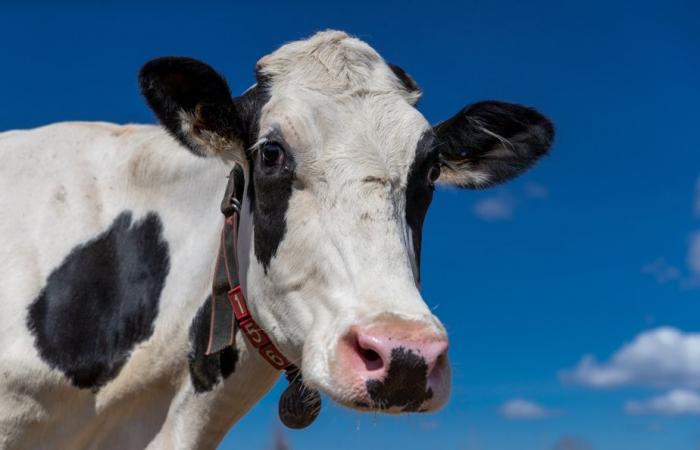Mammals, fish, birds or arachnids, they have been the talk of the town in 2024. Here are the animals of the year.
Published at 5:00 a.m.
Peanut the squirrel
With his little cowboy hat, Peanut caused a sensation. But the New York State squirrel also became a symbol in the fight against undocumented immigrants in the United States, when an agent of the state health authorities euthanized it to test it against rabies . Not because Peanut crossed a border irregularly – he had been taken in by a man who domesticated him – but rather as a symptom of carelessness. “The same government that does not care that there are hundreds of thousands of criminal illegal immigrants coming to our country does not want us to have pets,” protested the future vice-president. President Donald Trump, JD Vance.
The deer of Longueuil
PHOTO DAVID BOILY, LA PRESSE ARCHIVES
Deer at Michel-Chartrand Park, in Longueuil
A total of 105 deer were slaughtered at Michel-Chartrand Park, after a two-year legal battle. The problem of overpopulation of these animals has led to hundreds of accidents over the years and the City of Longueuil wanted to reduce the herd. Sauvetage Animal Rescue instead offered a trip. The City finally obtained a permit for the slaughter of deer using compressed air weapons. The operation ended in mid-December. The goal was to limit the number of deer to five per square kilometer.
Flaco the owl

PHOTO JEENAH MOON, ARCHIVES THE NEW YORK TIMES
Flaco perched on the branch of a tree in Central Park in February 2023
Flaco gained his freedom – and popularity – by escaping from the Central Park Zoo in February 2023. The 14-year-old European eagle owl died a year later when he crashed into a building. The owl was a legend in New York, where bird watchers sought to catch a glimpse of it. Building windows are deceptive to birds, but it seems Flaco was already doomed by his lifestyle: a necropsy revealed in March that the bird of prey had consumed rat poison – the City is at war with these rodents – and that he had contracted a deadly virus from eating pigeons.
Here are the beavers

PHOTO JANE NEWHOUSE, NEWHOUSE WILDLIFE RESCUE, ARCHIVES ASSOCIATED PRESS
Here are the beavers
It’s not every day that the governor of a state intervenes in favor of… a beaver. But Nibi is different: the little 2-year-old female was taken in by the Newhouse Wildlife Rescue, near Boston, a few days after her birth. With the aim of allowing her to return to her natural environment once she could fend for herself. But little did the organization know that she would become what her employees described as a “diva,” refusing to interact with other beavers. The case went to court, but it was ultimately the governor of Massachusetts, Maura Healy, who allowed Nibi to stay at the shelter.
The spider of STAT

IMAGE FROM THE BROADCAST, PROVIDED BY -
The famous spider STAT
Unlike the other animals in this list, the spider STAT is fictitious. Nevertheless, she kept many viewers in suspense, curious – or disgusted – each time she appeared in close-up. Note: this type of hairy and venomous tarantula, theA strong man of Sydney, really exists. Even if it is a rare phenomenon, the plot concocted by the author Marie-Andrée Labbé is part of a real fear: the involuntary importation of dangerous animals or insects. This year, a Laval resident reported being stung by a scorpion, hidden in his bananas at Costco.
Animals of Springfield

PHOTO MADDIE MCGARVEY, ARCHIVES THE NEW YORK TIMES
La would they Springfield, an Ohio
A rumor gained momentum when Donald Trump falsely claimed during the presidential debate that immigrants in Springfield “eat dogs, eat cats.” If the statement sparked its share of jokes on the internet, in addition to becoming an earworm thanks to the Kiffness remix, it was not without consequences for the inhabitants of this Ohio city. Bomb threats led to the temporary closure of schools and businesses. Even though the authorities have repeatedly tried to correct the situation, denying that immigrants were stealing animals for food.
Great white sharks

PHOTO ARCHIVES THE CANADIAN PRESS
The number of great white sharks in the Gulf of St. Lawrence during the summer has been increasing in recent years.
For several years now, oceanographers have noticed changes in the Gulf of St. Lawrence. With the increase in water temperature, specialists report an increase in the number of great white sharks in part of the Gulf during the warm season. Good news for the endangered species. The great white shark Scot, a 745 kg male, was also spotted off the Magdalen Islands during the fall, thanks to a satellite tag implanted on the animal by Ocearch in 2021.
Cows with flu
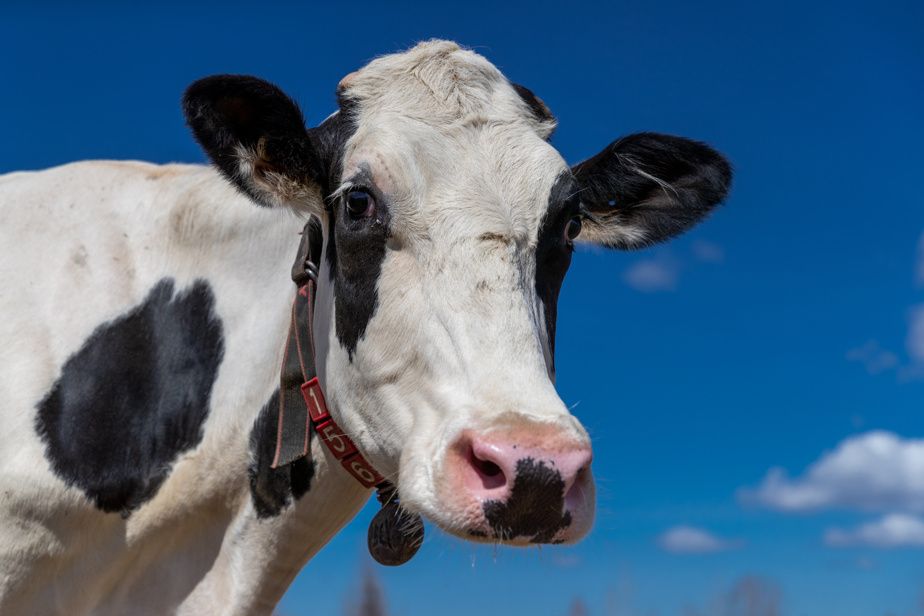
PHOTO MARTIN TREMBLAY, LA PRESSE ARCHIVES
The first transmission of avian influenza A(H5N1) from wild birds to dairy cows was reported last spring in the United States.
Public Health is closely monitoring the development of the potentially fatal avian influenza A(H5N1). Although the virus was first detected in poultry more than two decades ago, a first transmission from wild birds to dairy cows was reported last spring in the United States. Affected cattle present different symptoms: loss of appetite, fatigue, fever. The virus was transmitted to farm employees. A first human case of avian flu in Canada was recorded in November, in British Columbia. The teenager was treated for several days in intensive care.
With the BBC, the Guardianthe New York TimesThe Canadian Press

